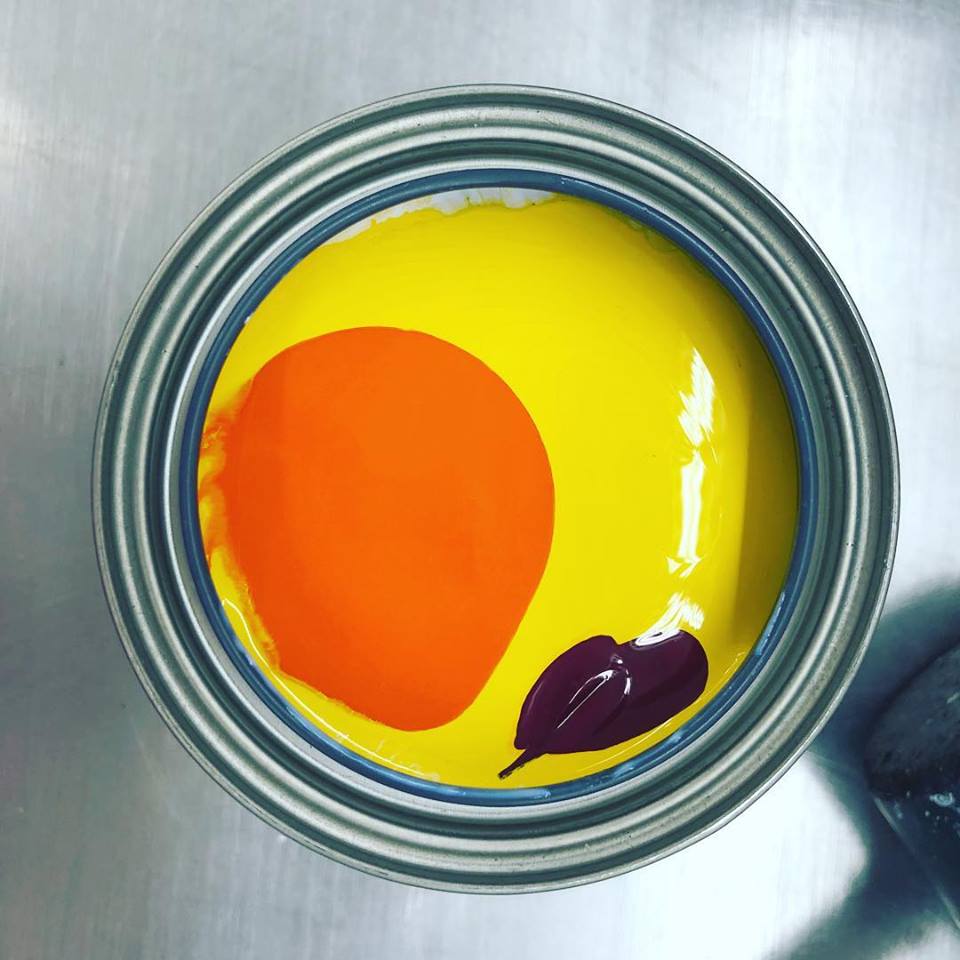
I was a child once, and had no concern for cash but did, and still do, have a compulsion towards coins. The curve, the jangle, the shine. A coin is kind of magic, how any circle charms the human eye: halo, hollow, sun. We scraped circles on rocks before we could cobble together tools from anything other than stone. Petroglyphs are found on every continent except Antarctica, already its own circle. Cup-and-ring marks—concentric circles surrounding a central divot—snake around Europe, Russian dolling like the stone circle structures across the moors of my childhood. I was taught Stonehenge was women frozen from dancing with the devil, not a clock or a church or a kaleidoscope into another world. But, megaliths are ten a penny where I’m from. There was a use, or there wasn’t—a circle can only flip one way then the next, always an underbelly, not fit into a box.
The pennies were what I wanted most. I could sneak them in my mouth for a small taste of blood, could create a treasure trove from the unwanted chunks of an adult’s day. I did not collect them, just accumulated. Adults misunderstood the magic of small parts—that this small one could build and build. Once, my father took one of my precious pennies at Scotland’s Highland Zoo, put it through a penny crusher, and presented me with the token—a copper portrait of a red panda, family memory made metal. I was so distraught that I wept the entire twelve-hour drive home, from the Cairngorms to Cornwall. He had wanted to return the favor: from before my memory begins my chubby hands found washers and proudly presented them to my father.
A washer is a small, circular piece of hardware, often metallic with a multitude of uses—the curve, the jangle, the shine. Picking these glints off the ground became a habit. I was not interested in sparkle, some metallic value, making play coins—I wanted to be of use. My father fixed things, and my collection helped him. I have plucked a washer from the Pennine Mountains, from a craggy cove only accessible by boat, from my first visit to London at age five when the animatronic Tyrannosaurus Rex was the largest embodiment of beauty I could comprehend. Each one proudly placed in my father’s calloused hands, my usefulness. The heart, too, is circular. Pumping its same circuit, piping its same circular logic: you love your family because they’re your family, they’re your family because you love them.
Some habits are too hardwired to break, even when they no longer serve a purpose. My coins that were not coins are a compulsion, still. A continent away, I still pick up washers—a glint of a simple idea of home. Not where the heart is, not exactly. I’ve spent American currency—a tender not charmed by coins in the same way as British money—to mail envelopes with these pointless circles to my father. Once, he fished out a Roman coin from the quarry-made-lake he was bridging. A currency out of circulation, all the more special for its lack of utility. The myth is that the Romans never made it to our neck of Britain, but still his hands found the glint of meaning in the mud. Beyond their coins, their colosseums, their circuses, Ancient Rome claims to have designed the compass, tool for drawing circle upon circle. This, too, is a myth: I know I invented it, pivoting my fingers around the anchor of my thumb over the map. My hand making a compass to say distance is never disconnection.
His hands haven’t been able to fix anything for years. When I visit, I try. I take him his morning tea and pills and put his socks on. The coffee tin that sits on the nightstand might be mistaken for a change collection, the nightly ritual of emptying your pockets, but no, it’s full of washers. I fill this coffer more slowly now. Just one or two new treasures a year to top up the trove my father has collected from my lifetime. I know now the use of these useless metal parts. I want these coins that are not coins to buy back time. To buy back a father who remembers my name, who remembers what magic we were building with these pointless charms I pick up from the filthy street and keep in my treasure chest, a coffee can on my desk.
___
Caroline Crew is the author of Pink Museum, as well as several chapbooks. Her poetry and essays appear in The Kenyon Review, DIAGRAM, and Gulf Coast, among others. Currently, she is pursuing a PhD at Georgia State University, after earning an MA at the University of Oxford and an MFA at UMass-Amherst.
Photo by Elizabeth Fackler

1 comment
Shannon says:
May 20, 2019
Rusty, rustic, and beautiful. Well done.